How Professional Sealing Transforms Your Basement
Protecting homes in Dayton from water damage is what we do best at DW Basement Waterproofing, and we’ve been dedicated to this mission for over 20 years. Our team specializes in basement waterproofing Dayton, utilizing effective sealing techniques that safeguard foundations, enhance indoor air quality, prevent mold growth, and ultimately add value to your homes. As one of the reliable basement waterproofing companies in the area, we have earned the trust of homeowners throughout Dayton by creating durable barriers against moisture intrusion, ensuring that your basement remains dry and fully functional.
In this article, we delve into the common causes of water intrusion, the professional sealing techniques we employ, and the best sealant materials suited to Dayton’s unique soil and weather conditions. We also discuss basement waterproofing cost factors, the advantages of opting for professional services over DIY approaches, and the critical importance of having effective drainage systems in place. Our local expertise as one of the leading basement waterproofing companies not only helps you protect your investment but also prepares you for the next steps involved in finishing your basement after sealing. With our guidance, you can confidently move forward and maximize the potential of your home.
What Are the Common Causes of Basement Water Intrusion in Dayton?
Basement water intrusion in Dayton is driven by several factors that lead to persistent dampness and structural damage. High hydrostatic pressure from rainfall and soil composition, foundation cracks, and poor drainage systems are common contributors. Moisture can seep in through minor cracks or excessive water buildup due to improper gutter maintenance and unfavorable grading, making it essential to address both internal and external moisture sources.
How Do Foundation Cracks Lead to Basement Water Damage?
Even small fractures in concrete create channels for water penetration, undermining structural integrity and contributing to widespread dampness. In Dayton’s freeze–thaw cycles, these cracks can enlarge, increasing water entry. Sealing these cracks with high-quality epoxy injection and polyurethane coatings has proven to reduce water infiltration significantly. We use advanced moisture detection to locate the issue and target repairs, ensuring the foundation remains secure and dry.
What Role Does Hydrostatic Pressure Play in Basement Leaks?
When water builds up in the soil around the foundation, hydrostatic pressure forces moisture through even tiny openings in basement walls and floors. This effect intensifies during heavy seasonal rainfall or when the water table is high. Our approach involves external drainage improvements—such as installing French drains and sump pumps—as well as interior sealing systems to relieve pressure and keep basements dry even during storms.
How Does Poor Drainage Affect Basement Moisture Levels?
Inadequate drainage from poorly maintained gutters, downspouts, or improper landscaping leads to water pooling around the foundation. This constant moisture creates an environment prone to severe water damage and mold growth. To combat this, we incorporate properly graded landscaping, French drains, and sump pump installations. Our comprehensive assessments ensure that drainage complements our sealing methods, establishing the first line of defense against leaks.
Which Professional Basement Sealing Techniques Effectively Prevent Water Damage?
Effective sealing starts with a detailed inspection to identify water entry points. Based on our evaluation in Dayton, we implement a combination of interior and exterior sealing methods that together provide a robust defense against water penetration while preserving both your home’s foundation and interior environment.
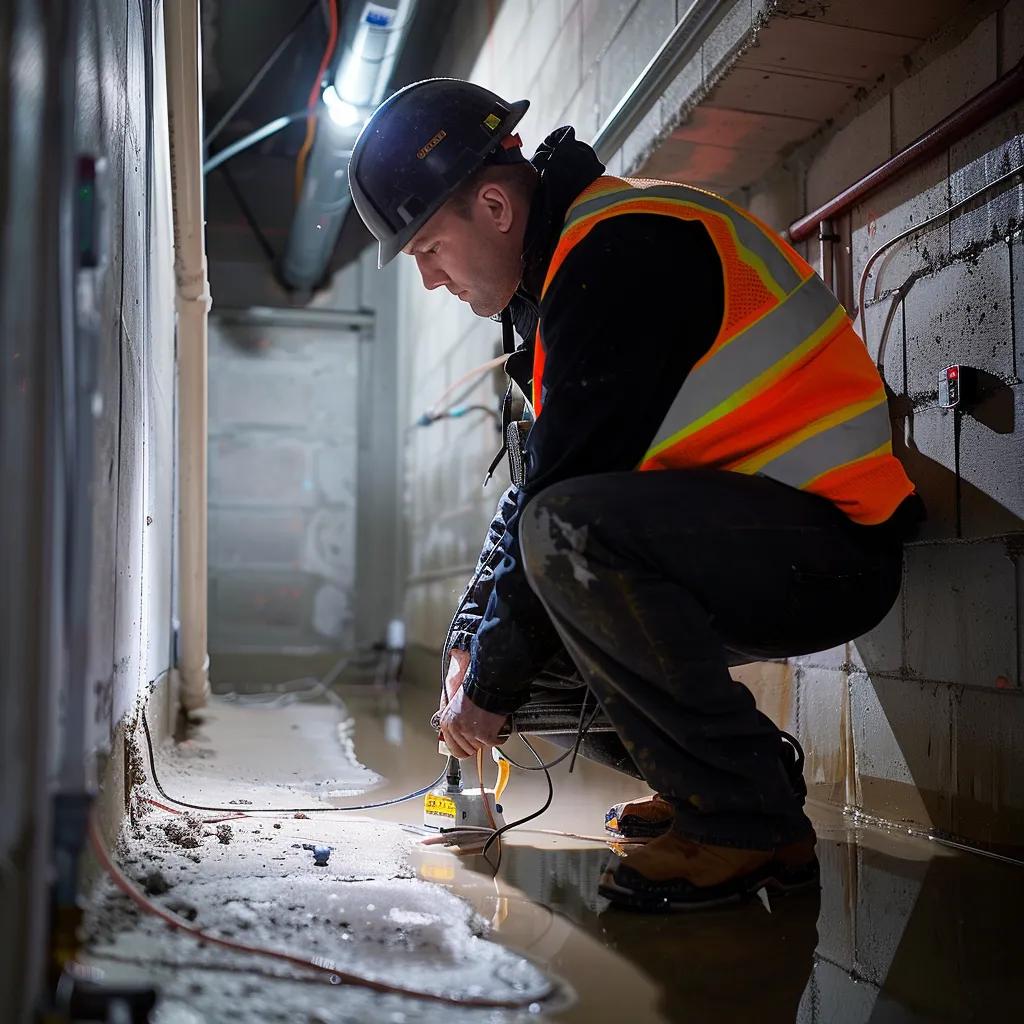
How Does Epoxy Injection Repair Foundation Cracks?
Epoxy injection repairs involve injecting a high-strength epoxy resin into foundation cracks. This process bonds the cracked surfaces together and restores concrete integrity, stopping current water infiltration and preventing future leaks. Our foundation repair experts carefully pre-treat and clean cracks before application, ensuring optimal adhesion. This method, effective on both hairline and wider gaps, can improve water resistance substantially.
What Are the Benefits of Polyurethane Coatings for Basement Walls?
Polyurethane coatings are ideal for sealing basement walls due to their flexibility and fast-curing properties. They form a waterproof, breathable membrane that adheres well even under high-pressure conditions from saturated soil. In Dayton, where moisture levels vary with the seasons, these coatings prevent water entry while allowing moisture vapor to escape, reducing the risk of mold and maintaining air quality.
When Should You Choose Interior vs. Exterior Basement Sealing?
The choice between interior and exterior sealing depends on your home’s specific challenges. Exterior sealing is preferred when soil conditions and water pressure are the main issues, as it involves repairing outside walls and creating a continuous barrier. Interior sealing is ideal for localized problems or when excavation isn’t practical. Often, a dual approach is necessary; our experts assess the property to design a balanced strategy that relieves hydrostatic pressure and blocks moisture effectively.
What Sealant Materials Are Best for Long-Lasting Basement Protection?
The durability of a waterproofing basement systems lies in the choice of sealant materials. At DW Basement Waterproofing, we recommend materials based on proven performance in Dayton’s challenging climate, ensuring long-lasting protection with minimal maintenance.
What Are the Advantages of Epoxy Sealants?
Epoxy sealants offer exceptional adhesion, high compressive strength, and chemical resistance. They are especially effective in repairing cracks and forming a durable barrier. When applied correctly, epoxy can dramatically reduce water penetration for many years, providing a seamless surface that also supports subsequent interior finishing.
How Do Polyurethane Sealants Compare to Cementitious Coatings?
Polyurethane sealants, known for their flexibility and quick curing, adapt to structural movements better than cementitious coatings, which provide high compressive strength and are used in load-bearing areas. In Dayton’s variable climate, polyurethane is usually preferred for its blend of durability and adaptability. Our team selects the best material for each situation based on the specific structural and environmental conditions present.
Which Sealants Are Most Suitable for Dayton’s Climate and Soil Conditions?
Considering Dayton’s significant seasonal temperature changes and moisture variability, the best sealants are those that combine resilience with flexibility. Typically, polyurethane and epoxy sealants are most effective. We may also use a hybrid formulation that leverages both water-based and solvent-based properties to withstand high water pressure and mitigate moisture vapor migration, ensuring prolonged performance.
How Does Professional Basement Sealing Improve Your Home’s Value and Indoor Air Quality?
A professionally sealed basement does more than prevent water damage—it enhances overall home quality. A dry basement reduces the risk of mold and mildew, which in turn improves indoor air quality, making the living environment healthier and more comfortable. This directly translates into increased property value, as buyers appreciate the benefits of a well-protected, finished basement.
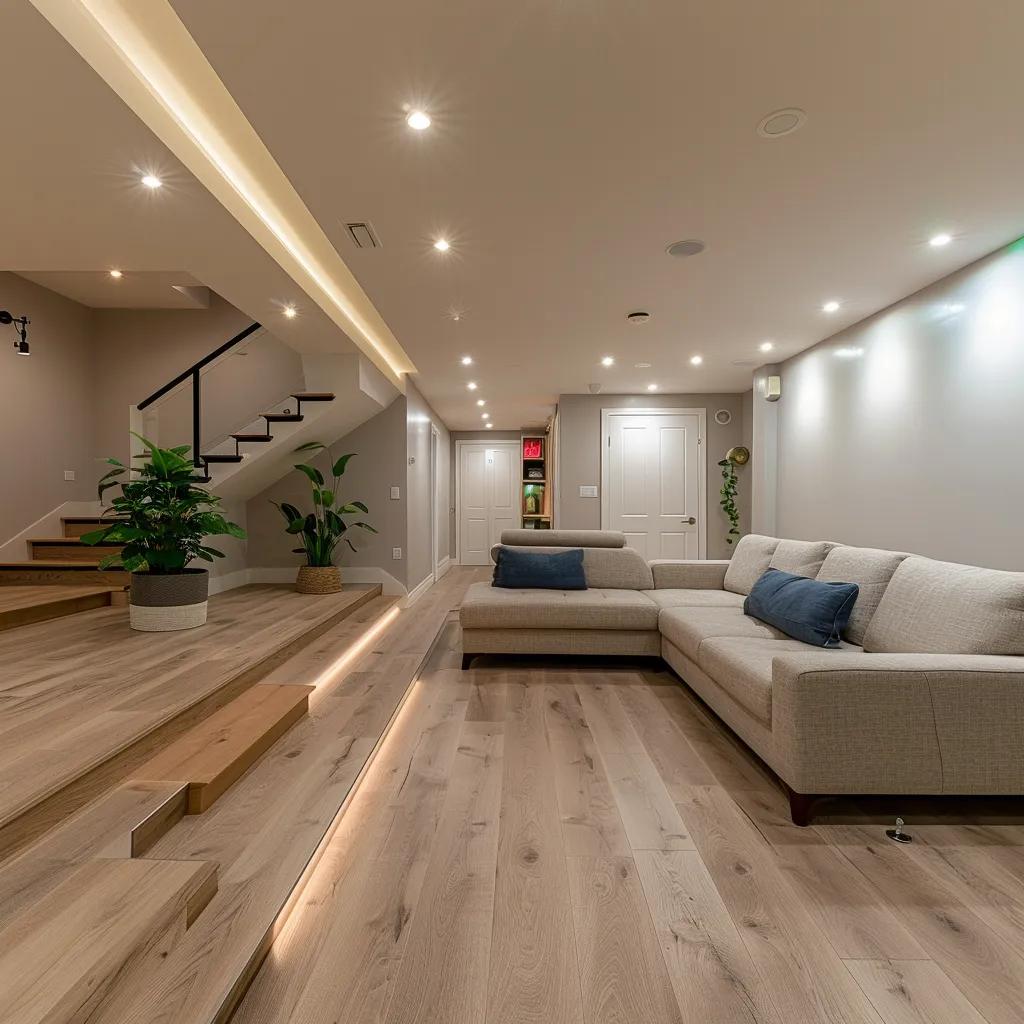
In What Ways Does Sealing Prevent Mold and Mildew Growth?
By effectively curbing water intrusion, sealing lowers indoor humidity levels and prevents moisture accumulation, creating conditions that are hostile to mold and mildew growth. This not only protects the structural integrity of your home but also reduces allergens and supports a healthier indoor environment.
How Does Basement Sealing Create Usable Living Space?
A sealed basement can be transformed into a functional living area, whether as a family room, guest suite, or home office. Our sealing process ensures a dry, stable foundation that supports renovations and enhances both the aesthetic appeal and the square footage of your home.
What Impact Does Sealing Have on Property Value in Dayton?
Homes with professionally sealed and finished basements are more attractive in the Dayton real estate market. Buyers recognize the reduced risk of water damage and the potential for additional living space, which can lead to higher sale prices and improved energy efficiency.
What Factors Influence the Cost of Professional Basement Sealing in Dayton?
The cost of basement sealing depends on the size of your basement, the degree of water damage, and the sealing materials used. At DW Basement Waterproofing, we provide transparent pricing based on a thorough evaluation, ensuring that every project is cost-effective without compromising on quality.
How Do Basement Size and Damage Severity Affect Pricing?
Larger basements or those with extensive damage typically require more materials and labor, driving up the cost. In contrast, smaller, well-maintained basements may need simpler sealing solutions. Our detailed assessments help determine the most efficient and effective strategy to suit your budget.
What Are Typical Price Ranges for Different Sealing Techniques?
Sealing projects in Dayton typically range from $2,500 to $7,000. More advanced techniques—such as epoxy injection and polyurethane coatings—tend to be on the higher end due to their durability, while interior remedial measures may be more affordable. We provide free estimates to help you understand the costs based on your unique situation.
Are Financing Options Available for Basement Sealing Services?
To help manage the investment, we offer flexible financing options, including low-interest payment plans and deferred payment schemes. These options enable homeowners to improve their property’s safety and value without significant upfront expenses.
When Should Homeowners Choose Professional Sealing Over DIY Methods?
While DIY basement sealing may seem appealing for its potential cost savings, the complexity of water intrusion issues makes professional intervention the superior choice. Our experienced basement waterproofing Dayton team uses specialized equipment and materials to ensure that sealing is thorough and long-lasting.
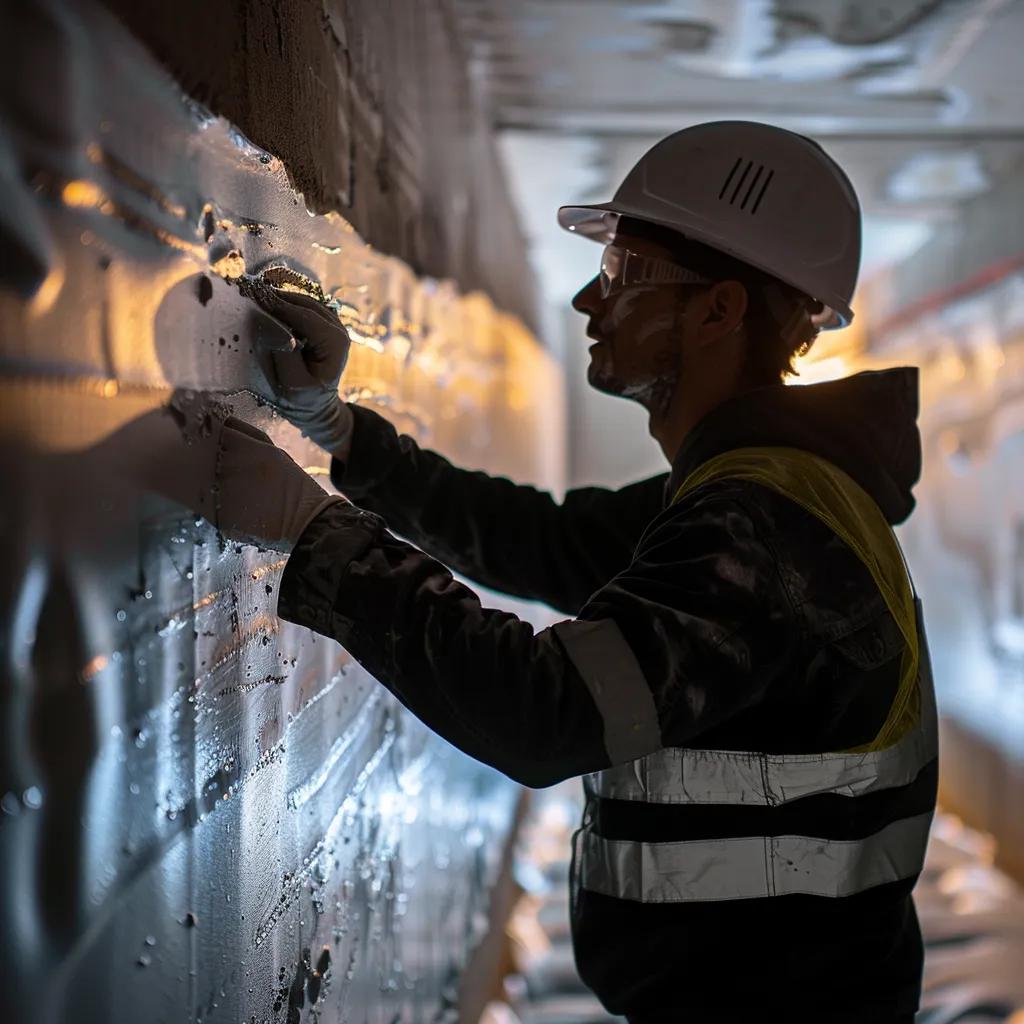
What Are the Risks of DIY Basement Sealing?
DIY methods often result in incomplete repairs, poor adhesion, and recurring water problems. Lack of proper equipment and technical know-how can lead to further structural damage, additional repair costs, and compromised indoor air quality.
How Does Professional Expertise Ensure Effective and Durable Results?
Our basement waterproofing Dayton professionals carry out comprehensive assessments and use industry-leading materials to seal all vulnerable points. With careful pre-treatment, precision application, and stringent testing for water tightness, our methods reduce downtime and future repair costs while providing a reliable, long-term solution.
What Warranty and Guarantees Do Professionals Like Basement Solutions of Dayton Offer?
DW Basement Waterproofing provides comprehensive warranties on all work performed, ensuring that any issues are promptly addressed at no extra cost within the warranty period. This level of guarantee offers homeowners peace of mind and confirms the long-term effectiveness of our solutions.
How Do Basement Drainage Systems Complement Professional Sealing for Complete Waterproofing?
A complete waterproofing strategy integrates professional sealing with effective drainage systems. Proper drainage relieves hydrostatic pressure and directs water away from the foundation, thereby enhancing the efficacy of the sealant.
What Are the Benefits of French Drains and Sump Pumps?
French drains channel water away from the foundation using perforated pipes set in gravel, while sump pumps efficiently remove water from the basement. Together, these systems help lower the water table and relieve pressure on basement walls, ensuring that the sealing remains effective.
How Do Drainage Systems Work With Sealants to Prevent Water Intrusion?
Drainage systems and sealants work in tandem—while sealants provide an impermeable barrier, drainage systems manage external water flow. By addressing both indoor and outdoor moisture sources, our integrated approach minimizes the risk of leaks and structural damage.
When Is Installing a Drainage System Necessary Alongside Sealing?
For properties with high groundwater levels or significant runoff issues, drainage systems are essential. Even if the basement appears dry, subtle groundwater pressure can undermine sealing over time. We recommend adding drainage improvements whenever there is a history or risk of moisture problems.
Why Is Local Expertise Critical for Effective Basement Sealing in Dayton, Ohio?
Local expertise is vital because Dayton’s unique weather patterns and soil conditions require tailored waterproofing solutions. Our extensive basement waterproofing Dayton experience in the region enables us to design strategies that address common local challenges, ensuring the durability and effectiveness of our work.
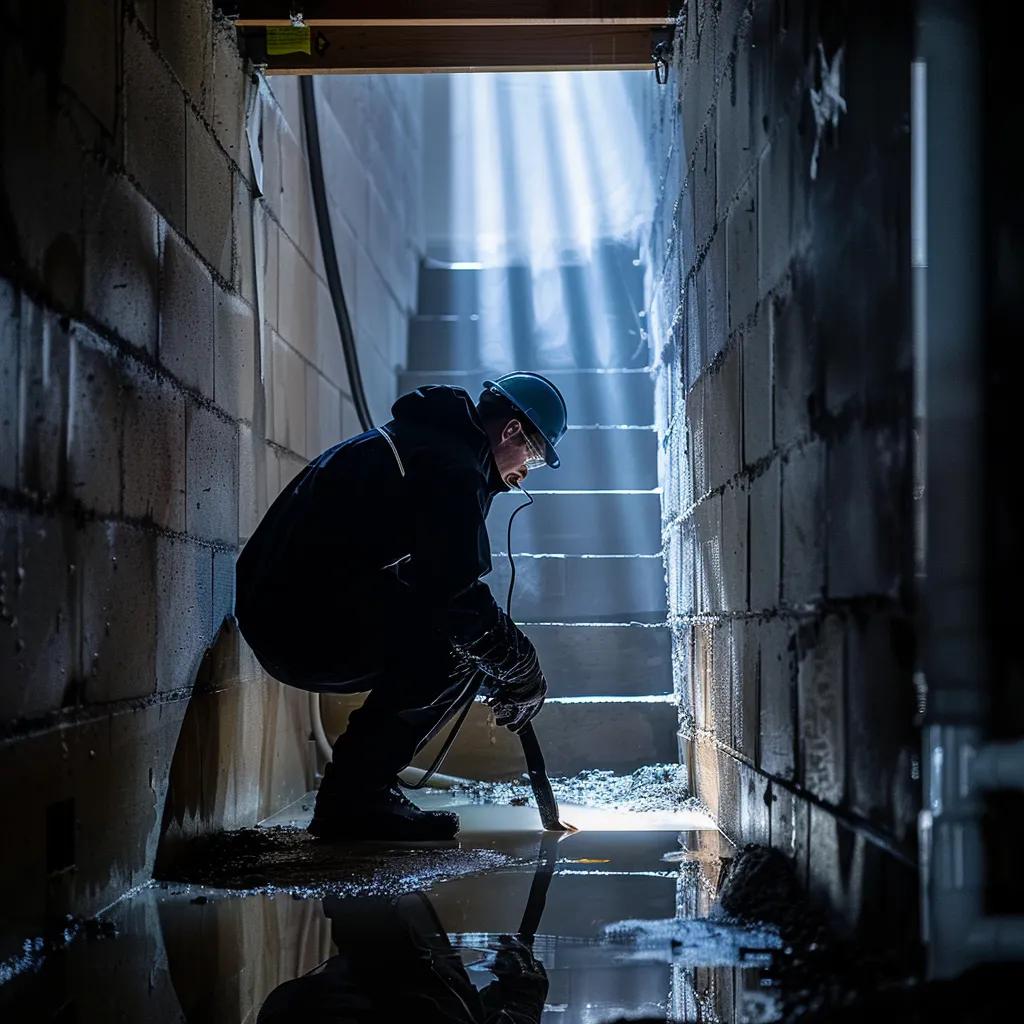
What Unique Basement Challenges Does Dayton’s Climate Present?
Dayton’s heavy seasonal rainfall and cold winters, with frequent freeze–thaw cycles, can cause concrete to crack and clay soils to swell or shrink. These conditions require specialized knowledge to prevent water intrusion effectively. Our local expertise ensures that we address these challenges head on.
How Does Basement Waterproofing Solutions of Dayton Customize Sealing Solutions?
We begin with a detailed on-site assessment to identify all sources of water intrusion, including foundation cracks and drainage issues. Our tailored strategies may combine multiple sealing techniques with drainage improvements, ensuring that every home receives a customized, effective solution.
What Do Dayton Homeowners Say About Their Basement Sealing Experiences?
Many of our clients report improved indoor air quality, reduced damp odors, and transformed basements that can now be used as living spaces. Their testimonials highlight our professionalism, thorough assessments, and the noticeable improvements in both comfort and property value.
What Are the Next Steps After Professional Basement Sealing to Finish Your Basement?
After sealing, the next step is to transform your basement into a finished living space rather than leaving it for storage. Finishing your basement not only enhances its aesthetic appeal and functionality but also further increases your property’s value.
How Can You Prepare Your Basement Finishing After Sealing?
Before finishing, ensure the basement remains dry for several weeks post-sealing. Then, proceed with insulation installation, vapor barrier application, and selecting appropriate flooring designed for moisture-prone areas. These steps establish a stable foundation for further improvements like drywall, ceiling installations, and lighting.
What Materials and Designs Work Best in a Sealed Basement?
Select waterproof and durable materials such as luxury vinyl plank or ceramic tiles for flooring. Moisture-resistant drywall and insulated panels help maintain a steady temperature and prevent condensation. Our collaboration with interior designers ensures that your finished basement is both practical and attractive.
How Does Sealing Support Long-Term Basement Maintenance?
A properly sealed basement minimizes the need for frequent repairs and future maintenance. With reduced water penetration, the basement’s structure is preserved, indoor air quality is maintained, and periodic inspections replace emergency repairs. This proactive approach saves time and money over the long term.
Frequently Asked Questions
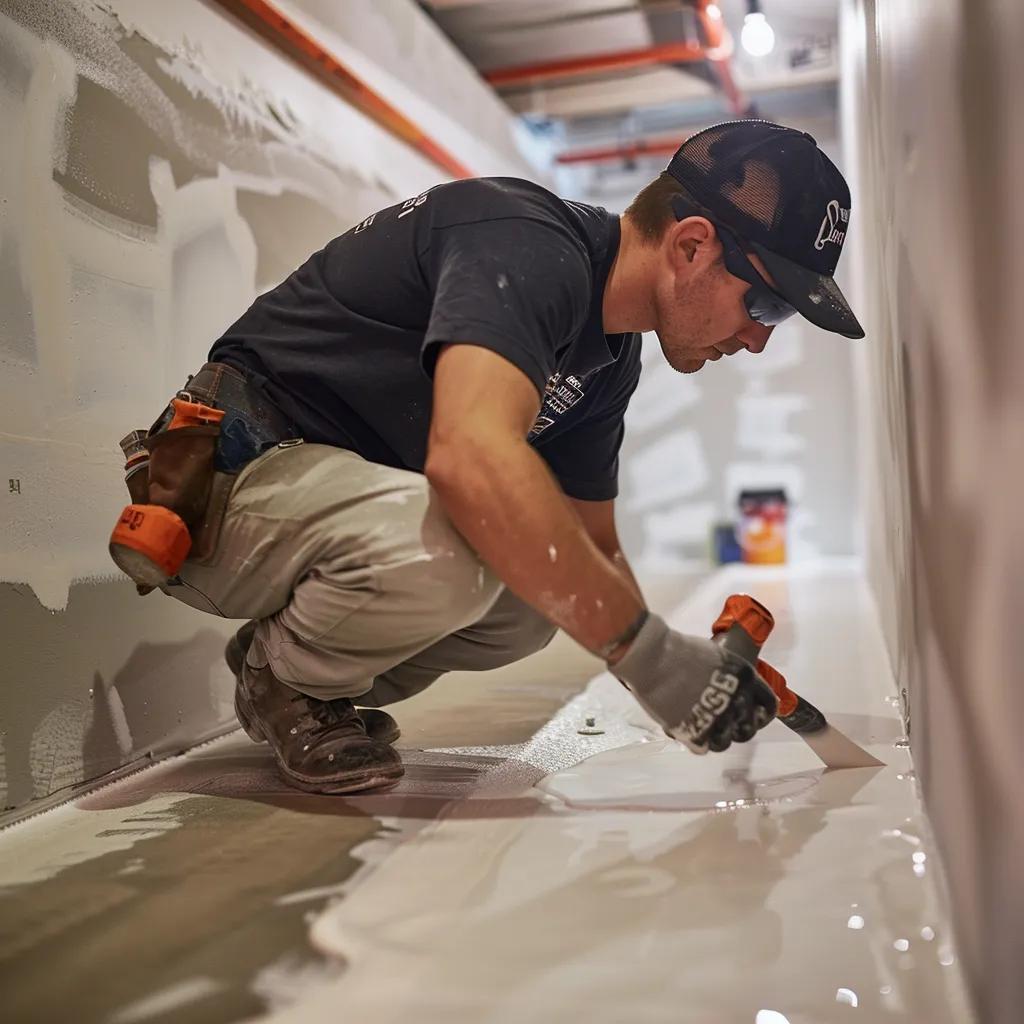
List: Sealant Material Comparison Table
Before finishing your basement, review the differences between sealant materials. The table below summarizes the properties of epoxy and polyurethane sealants along with their benefits for Dayton’s conditions.
Our experts use this data to recommend the best sealant for each project, ensuring long-term performance and durability.
Detailed List: Steps for Preparing Your Basement for Finishing
- Dry Out the Basement Thoroughly – Ensuring Moisture Control:
Verify that the basement remains dry for several weeks using moisture meters and dehumidifiers if necessary. - Install Insulation and Vapor Barriers – Energy Efficiency and Protection:
Install insulation to regulate temperature and vapor barriers to prevent moisture migration from external walls. - Select Appropriate Flooring Materials – Functionality and Aesthetic Appeal:
Choose waterproof flooring such as luxury vinyl or ceramic tiles that maintain appearance despite minor moisture. - Plan Electrical and Lighting Layout – Enhancing Usability:
Ensure proper lighting and electrical outlets are planned to make the finished basement both safe and convenient. - Evaluate Wall Treatments and Finishes – Long-Term Maintenance:
Use moisture-resistant drywall and finishes designed for high-moisture areas to protect against future issues and enhance indoor air quality.
Each step is essential for transforming your sealed basement into a valuable living space, and our expert guidance ensures every detail is properly managed.
By integrating strategies—from understanding water intrusion causes to selecting optimal sealant materials and preparing your basement for finishing—DW Basement Waterproofing transforms your basement into a safe, dry, and valuable part of your home. Our holistic approach, tailored for Dayton’s environmental challenges, guarantees long-term results that boost both property value and indoor air quality. We invite you to take the next step and schedule a free estimate with our experienced team.
